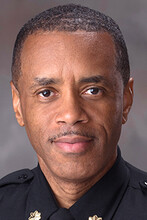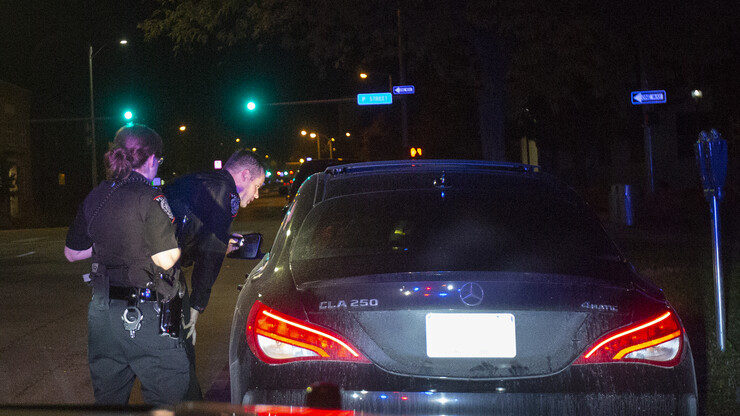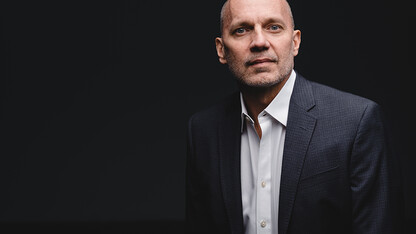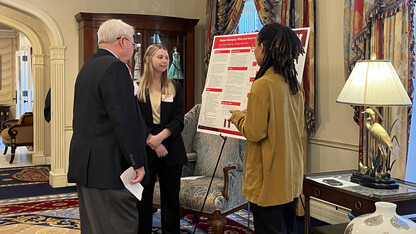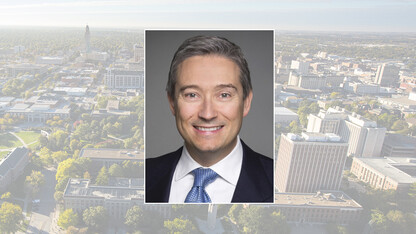· 5 min read
Nebraska U police expand commitment to community engagement
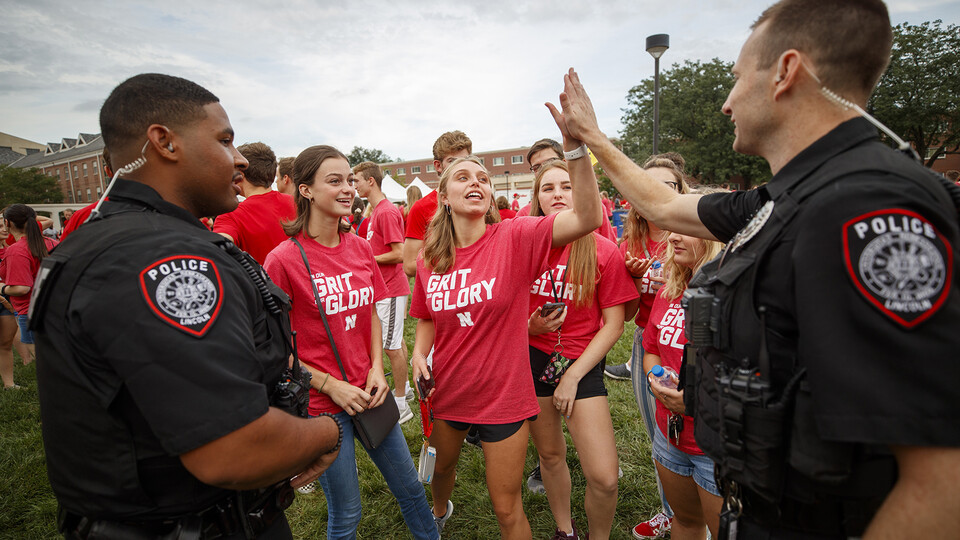
Shocked. Disgusted. Infuriated.
Those are the words that reverberate when Hassan Ramzah reflects on the tragic death of George Floyd at the hands of former members of the Minneapolis Police Department.
As a dedicated public servant with a 30-year career in law enforcement, the University of Nebraska–Lincoln’s interim police chief is like many others nationwide — appalled and disgusted in the actions of the officers. And, in a June 15 message to campus, he stood with other law enforcement leaders in the burgeoning call for public condemnation of the officers and the need for policing reform.
“As a black man, I’m appalled by the act itself and frustrated at how it destroys ongoing attempts to build trust with the citizens we serve,” Ramzah said. “Many of us join this profession dedicated to protecting and serving our communities with a desire to make a positive difference.”
Since joining the University of Nebraska–Lincoln Police Department as assistant police chief nearly four years ago, Ramzah has directed the department away from a warrior-based policing model and toward a guardian model. The approaches are polar opposites — the former featuring interactions that often skew negative, coming in the wake of emotional incidents; the latter leading to outreach efforts that fosters engagement and works to build police legitimacy and partnerships with the community.
“I practiced community policing in Wichita for years and found it very rewarding,” Ramzah said. “It’s also a philosophy that is perfectly suited to a campus environment where you have opportunities to collaborate on safety initiatives with campus stakeholders. And, rather than focusing strictly on enforcement, it allows our department to promote a secure environment while helping to educate students in the co-production of community safety.”
To date, the community policing model has built connections across campus, including dedicated liaisons who work with the university child care center, students in residence halls, and Fraternity and Sorority Life. It also features a dedicated Citizens Police Academy that allows faculty, staff and students to learn policing procedures through presentations and hands-on situations.
One of the first community-oriented events had the department participating in the chancellor’s annual barbecue at the beginning of the semester. During the event, Ramzah openly encouraged officers to interact and get to know students.
“It’s an opportunity for us to show students that we’re human beings too and that we’re there to support them whenever possible,” Ramzah said.
To help keep building positive momentum, the department participated in an external review one year ago. The process — which factored in responses from every officer in the department and other units across campus — identified strengths while also offering areas for improvement.
The review helped expand the community policing focus and led to participation in Trunk or Treat event on Halloween; a Cover the Cruiser sexual violence awareness campaign with the Association of Students of the University of Nebraska; and the Coffee with the Cops sessions in the Nebraska Unions.
The department has also launched expanded mental health and implicit bias training for all officers. Both trainings — particularly the focus on identifying biases — fall in line with the recent national push after Floyd’s death.
“It’s important for our policing practices to be congruent with the mission and values of the university,” Ramzah said. “Our implicit bias training program — which is required for all officers — is a way for us as individuals and a department to be aware of hidden biases influencing our perceptions, and, ultimately, build better relationships with the diverse campus community we serve.”
A commitment to being a leader in observing best practices in policing earned the department accreditation by the Commission on Accreditation for Law Enforcement Agencies. Known as the gold-standard for public safety, the accreditation has been earned by just 4 percent of law enforcement agencies across the nation.
In his June 15 message to campus, Ramzah outlined additional steps the department is instituting in the wake of Floyd’s death.
To encourage a greater diversity of voices in law enforcement guidance, the department will expand representation on its Police Advisory Board. The expansion will feature opportunities for the black community to assist in decisions that shape law enforcement on campus.
“Through the board, we will dive deeper into our policies and training, finding ways we can continue to move forward and do better for the entire campus community,” Ramzah said. “As these examinations lead to specific actions, we will be transparent and share them with you.”
Other key points within Ramzah’s message to campus include:
Continuing relationships with local law enforcement agencies, including the Lincoln Police Department, Lancaster County Sheriff’s Office and Nebraska State Patrol. As the university police are the lead law enforcement agency on campus, these partnerships are limited to safety and security for large campus events, including Husker football and volleyball games; and
Openly encouraging faculty, staff and students to step forward and share concerns regarding the department.
“Law enforcement officers individually and collectively have a responsibility to provide fair and equitable policing, a duty to care, and a responsibility to preserve and protect lives,” Ramzah said. “As a university police department, we have a great opportunity to work with our campus community towards meaningful change for generations to come.”
